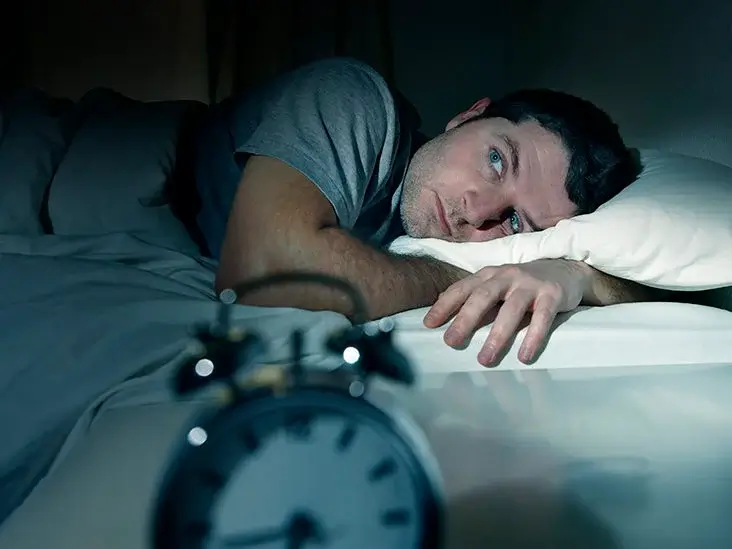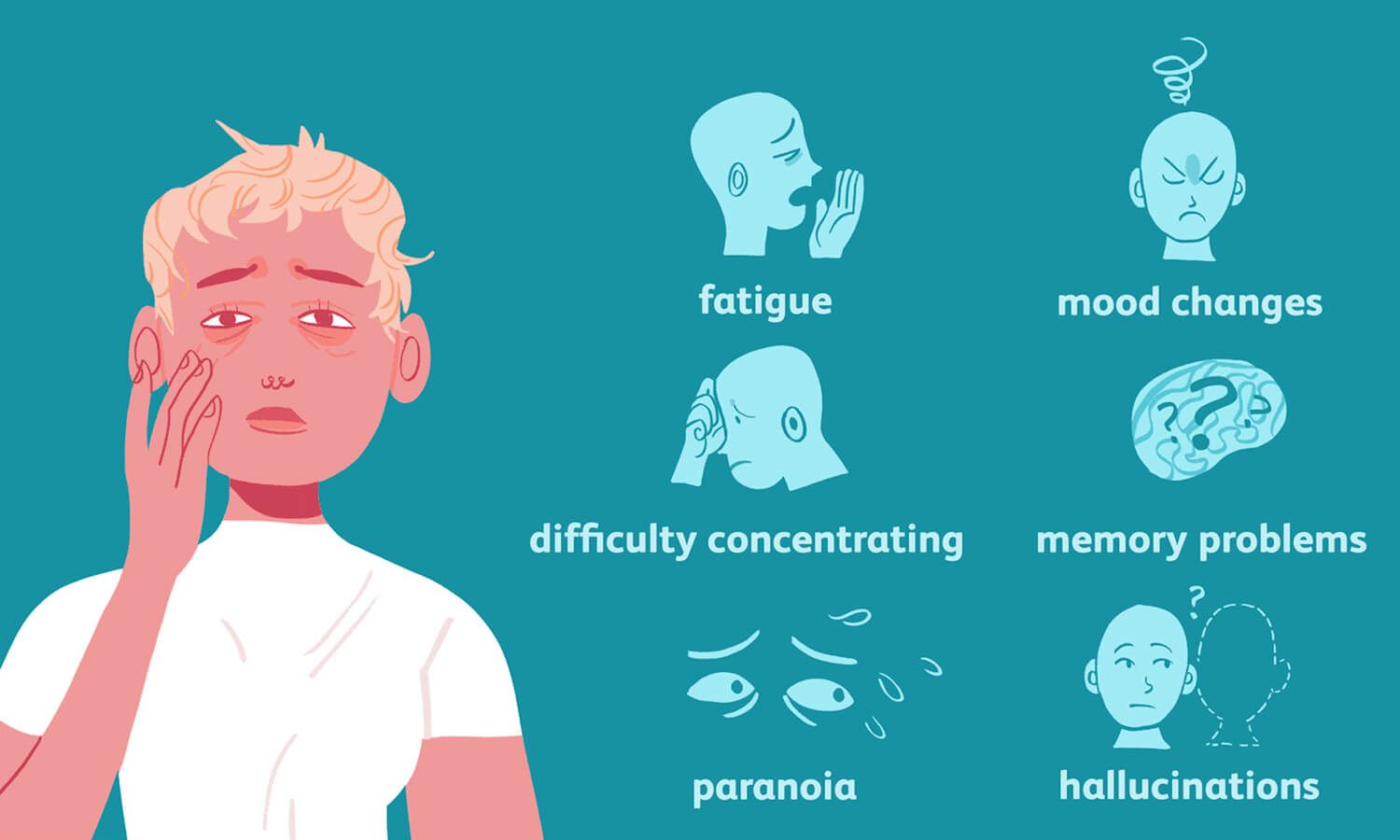Why do People hard to fall sleep
People have difficulty falling asleep for a variety of reasons, including stress and anxiety, lifestyle choices such as working late or exercising late in the evening, medical conditions such as asthma or depression, or a disrupted sleep schedule.

In addition to these factors, some medications can interfere with sleep.
Sometimes lack of sleep can lead to more serious health problems, so if you are having trouble sleeping it’s important to talk to your doctor about ways to improve your sleep.
The harm of can not sleep good
The consequences of not getting enough sleep can be severe, and include both physical and mental health problems.
Physically, lack of sleep can lead to fatigue, increased risk of
- injury or accident due to decreased alertness,
- weakened immune system making it easier to catch illnesses,
- headaches,
- weight gain
- loss due to hormone imbalances
- increased risk of heart disease

Mentally, people who don’t get enough sleep are at higher risk for depression and anxiety as well as lower levels of concentration and poor memory.
- Not getting enough quality restorative sleep leads to poorer decision-making skills and overall cognitive functioning.
- Sleep is incredibly important for children’s development in particular; those who don’t get enough restful sleep might suffer from cognitive delays such as difficulty with problem solving or language development.
- Teens are also at risk for changes in their behaviour if they don’t get enough good quality sleep; this could manifest as impaired judgement or an inability to regulate emotions.
- For adults, chronic insufficient sleep is associated with a greater prevalence of lifestyle diseases such as diabetes or obesity due to changes in hormone balances caused by inadequate rest.
- Additionally, those who struggle with insomnia often have difficulty maintaining healthy relationships due to their mood swings or inability to focus on conversations.
In order to make sure you’re getting enough good quality rest each night it’s important that you establish regular bedtimes and wake times every day; sticking to a regular schedule will help your body establish its own circadian rhythm so that it knows when it’s time for rest each night.
Avoiding late night meals as well as keeping your bedroom dark, cool and free from distractions will help you fall asleep faster too.
If these methods aren’t helping then it’s important that you speak with your doctor about possible solutions like medication or therapy designed specifically for people struggling with insomnia.
Getting the proper amount of restful sleep is essential for living a healthy life.
The benefit of sleep good.
The benefits of getting good quality sleep include improved
- physical and mental health
- better cognitive functioning
- improved decision-making skills
- increased energy levels
- strengthened immune system to help fight off illnesses more easily
- a decreased risk of lifestyle diseases such as diabetes or obesity

Additionally, children who get enough restful sleep can benefit from improved language and problem solving skills while teens may experience less mood swings or impaired judgement due to lack of sleep.
Getting the proper amount of rest each night is essential for living a healthy life.
How to fall sleep faster
Falling asleep fast can be a challenge for many people, especially if they have difficulty managing stress or anxiety.
Fortunately, there are a few simple steps that you can take to help you fall asleep faster and get the restful sleep that you need.
- The first step is to establish a regular sleep schedule and stick to it every night.
- Going to bed and waking up at around the same time every day helps your body establish its own circadian rhythm, which cues your body when it’s time to sleep.
- Additionally, avoid doing anything stimulating before bed such as using devices with screens (e.g., TV, laptop) or drinking caffeine late in the evening.
- Next, create an environment that’s conducive for sleep.
- Make sure your bedroom is dark, cool and free from distractions like noise or bright lights; this will help your brain wind down so that it’s easier for you to fall asleep quickly.
- You may also want to consider investing in blackout curtains or a white noise machine if needed.
For some people, relaxation techniques such as meditation or progressive muscle relaxation can help immensely with falling asleep faster by reducing stress levels and calming the mind before bedtime.
A hot bath or shower prior to bedtime could also help promote better rest since it increases core body temperature slightly and then lets it drop back down when you get out of the tub—which mimics natural body temperature cycles associated with healthy sleep patterns.
Lastly, avoiding heavy meals close to bedtime is often recommended since eating too much right before sleeping can make us feel bloated and sluggish when we should be winding down for the night.
Eating lighter foods at least two hours before going to bed can help our bodies more easily transition into sleeping mode without any uncomfortable feelings weighing us down.
By following these simple tips, you should be able to improve your chances of falling asleep faster so that you can get the restful sleep that you need for optimal physical and mental health.
How to improve sleep quality
Improving sleep quality is essential for living a healthy life.
There are many things that you can do to ensure that you get the restful, restorative sleep you need each night.
- First, establish a regular sleep schedule and stick to it as much as possible.
- Going to bed and waking up at the same time each day helps your body to establish its own circadian rhythm so that it knows when it’s time for rest each night.
- Additionally, try avoiding stimulants like caffeine in the evening, and avoid any stimulating activities before bed such as watching TV or using devices with screens.
- Creating an environment that is conducive for sleep is also important.
- Your bedroom should be dark, cool, and free from distractions like noise or bright lights in order to help your brain wind down and make it easier for you to fall asleep quickly.
- Consider investing in blackout curtains or a white noise machine if needed.
- Relaxation techniques can be beneficial in improving your sleep quality by helping you manage stress and anxiety levels before bedtime.
- Techniques such as meditation or progressive muscle relaxation have been found to reduce levels of tension and provide calming effects on the mind prior to sleeping.
- Taking a hot bath or shower before bed may also help promote better rest since it increases core body temperature slightly and then lets it drop back down when you get out of the tub—which mimics natural body temperature cycles associated with healthy sleep patterns.
- Finally, eating lighter foods two hours before going to bed can help our bodies transition more easily into sleeping mode without any uncomfortable feelings weighing us down.
Try avoiding heavy meals close to bedtime since eating too much right before sleeping can make us feel bloated and sluggish when we should be winding down for the night.
By following these simple steps, you can improve your chances of getting good quality sleep each night so that you can benefit from
- improved physical and mental health
- increased energy levels
- better cognitive functioning
- improved decision-making skills
- strengthened immune system to help fight off illnesses more easily –
- not to mention a decreased risk of lifestyle diseases such as diabetes or obesity
- children who get enough restful sleep will benefit from improved language skills & problem solving skills
while teens may experience less mood swings or impaired judgement due to lack of sleep!
